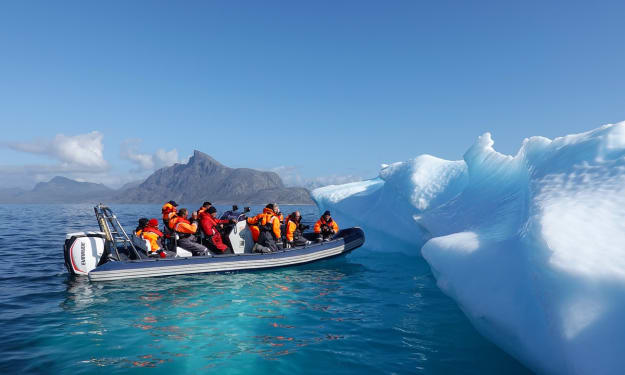The Slow Motion train wreck we can no longer ignore: How Climate Change Threatens our Food, Water, Infrastructure and Way of Life
When Systems Strain: Climate Change Lays Bare Cracks in Life's Infrastructure

Cracks in the Foundation
I stood watching in dismay as swollen floodwaters tore through the valley, engulfing verdant fields and pastures that only days ago waved golden with ripened crops. Bridges that withstood spring melts for generations now collapsed under tonnages of water never witnessed before, isolating rural hamlets under feet of angry brown torrents.
Townsfolk worked tirelessly to salvage waterlogged belongings from the ruins of homes and buildings foundations washed away, surrounded by landscapes transformed into vast wastelands devoid of all that nourished this tight-knit community for so long. How could places so reliably productive fall victim to the unpredictable violent whims of a changing climate, I wondered, as emergency crews searched for any trapped in the cascade.
For years experts cautioned such extreme whether events would accelerate as anthropogenic warming loads the atmosphere with heat. Yet too few heeded signs that small cracks were appearing, weakening foundations upon which civilization depends. Now entire regions reel from consequences that far outpace original projections, as climate chaos impacts arrive further, faster and more destructively than foreseen just decades prior.
In the fields, seeds stocks once adaptive to their soil now succumb to new disease pressures and collapse under heatwave duress - shifting seasons threaten to disrupt agricultural cycles and global food security. Below ground, aquifers lay drained and depleted while glacial iceboxes disappear, straining water supplies for parched municipalities as temperatures climb higher worldwide.
Along vulnerable coasts, whole neighborhoods hastily uproot to escape surging seas and monster storms while short sighted politicians continue to equivocate, denying the clear warnings signs we see multiplying daily around us - though studied climate science has sounded alarm bells for nearing half a century. We saw the fractures but drove on, foolishly convinced that small cracks don’t foreshadow an eventual collapse if ignored and left to worsen.
Now many grasp that climate change imperils not just seasons or ecosystems, but threatens our entire way of life dependent on stable forces that carbon excess works to weaken. So where do we go from here, as infrastructure and communities lie in ruin? Some work diligently to plant seeds of restoration through good policy. Yet how long will most ignore cracks widening in civilization’s foundation before political will strengthens to safeguard international commonwealth?
The time has come to fill wounds left untended, and shore up a social framework shaking under weight of a destabilized globe. Our watch ends - futures require rebuilding on bedrock of responsibility and care for shared natural bounty. Will humans rise to the task, or continue sleepwalking towards demise through lax conduct prolonging this crisis? Our choice looms clear - act with conviction now, or behold consequences of delay.
Derailment Dead Ahead
The impacts crept slowly at first, but each new disaster made plain a collision course decades in the writing. Hotter temperatures disrupted growing seasons worldwide while extreme rainfalls drowned or salted fields. Entire regions succumbed to megadroughts stretching decades as climate change transformed rain patterns in ways agriculture could not adapt to overnight.
Infrastructure built for past climates buckled under unprecedented loads - heatwaves strained electrical grids to breaking and swollen rivers overwhelmed aging flood defenses. Coastal cities confronted hard choices as insurers withdrew coverage and "sunny day flooding" worsened. Public health crises flared from heat stress, worseningunger and disruptions to sanitation as populations swelled in unplanned refugee zones.
Aquifers depleted by unsustainable drainage and warmer air dried reservoirs critical for billions. Water wars strained international relations where scarcity reigned and mass migration mountained. Even wealthier nations witnessed rural communities disappearing as climate refugees crowded into cities ill-prepared for the influx.
Research showed how nonlinear feedbacks accelerated warming beyond forecasts, risking crop belt transformations within mere decades instead of centuries. Even modest rises risked unraveling foundations of stability taken for granted - collapsing ocean currents, Amazon dieback amplifying emissions in a death spiral. Without urgent cooperation tackling both causes and impacts, runaway changes threatened civilization itself in ways past negligence left unaddressed.
Denial melted away as catastrophes mounted into an unignorable pattern civilization could avert only through unity and shared sacrifice restoring balance to Earth’s offended systems. Our watch had expired - survival demanded redirecting efforts matching climate change's severity before its simmering disturbances boiled over in a slow motion trainwreck of global proportions. The collision was imminent - but with courage, our hands could yet steer disaster away.
About the Creator
Enjoyed the story? Support the Creator.
Subscribe for free to receive all their stories in your feed. You could also pledge your support or give them a one-off tip, letting them know you appreciate their work.






Comments
There are no comments for this story
Be the first to respond and start the conversation.